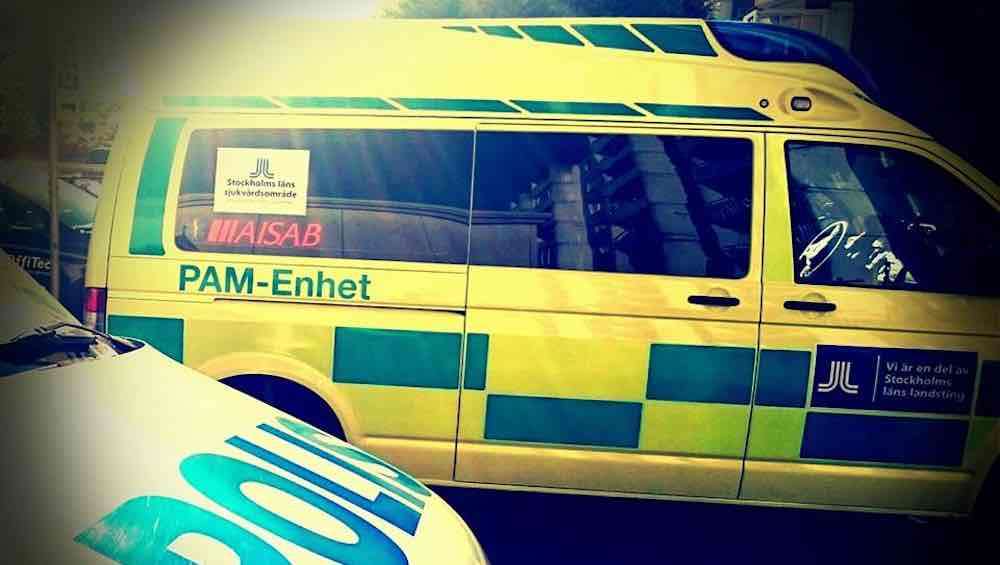Cheap, Electric Bandages Speed Up Healing Process From Two Weeks to Three Days
The groundbreaking process drastically speeds up healing times by using gentle pulses of electricity that are powered by our own body motions.

Stockholm is the first city in the world to deploy an ambulance specifically for responding to mental health crises. One year after its launch, its impressive data speaks to its success.
During its first year on the road, the Psychiatric Emergency Response Team (PAM) ambulance responded to over 1,000 individuals in need of help. On average, the PAM team responds to 135 calls a month - and they have only received repeated contact from 96 individuals in total. This low number of repeat crises shows the efficacy of having a dedicated team ready to listen to someone in need of counseling.
Out of the 1,036 individuals attended to during the first year, only one fourth went on to longer term inpatient care.
"It used to be the police who handled these kinds of calls. But just the presence of the police can easily cause a patient to feel like they've done something wrong. Mental illness is nothing criminal, so it doesn't make sense," PAM paramedic Anki Bjí¶rnsdotter told VICE.
Though the city of Stockholm is quite large, the PAM is willing to go wherever it is needed across the region. Before any action is taken, Bjí¶rnsdotter and the team take the time to understand the situation.
"We talk to the person in order to make a call about whether we should bring the patient to the hospital, or give them a ride home," she says. Once the team ascertains the situation, they can offer help on the spot or bring them in for an evaluation and longer care.
The interior of the special ambulance reveals the obvious difference between a normal emergency response vehicle and the PAM. Where a typical ambulance would have its interior taken up by stretchers and medical equipment, the PAM is instead outfitted with comfortable chairs and a small desk to create a relaxed environment conducive to discussion and therapy.
When asked about her opinion on the future of PAM, Bjí¶rnsdotter responded "I believe we will look back and think, ‘Why didn't we do this sooner?' I really hope similar services will be available to cover Sweden's major cities, at least."
Luckily, due to the success in Stockholm, additional regions such as Skí¥ne, írebro, Blekinge, and Jí¶nkí¶ping are planning to create their own PAMs.
Click To Share The News With Your Friends
Be the first to comment